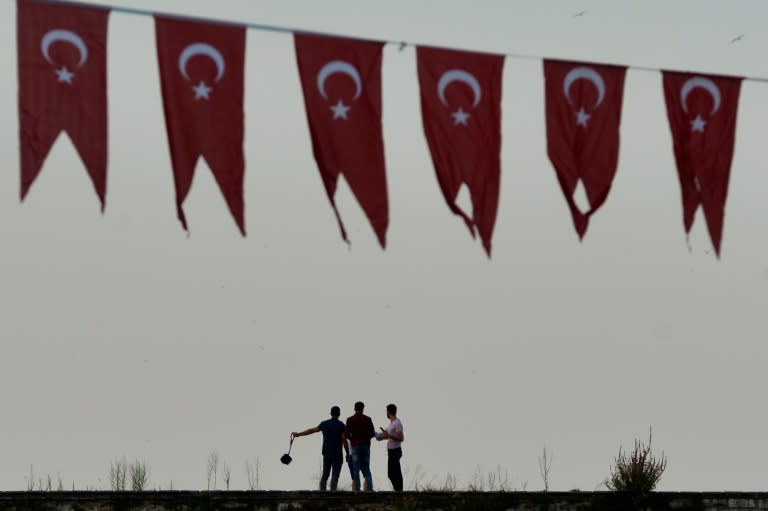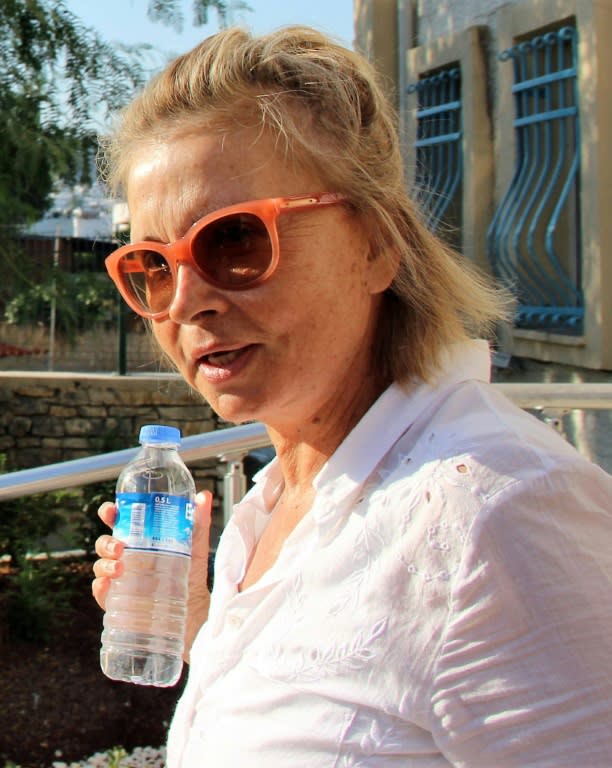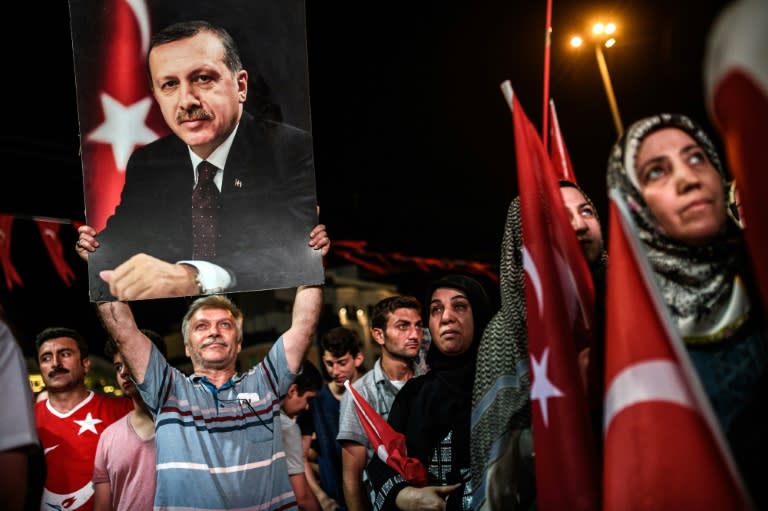Media targeted in Turkey's post-coup crackdown
Turkish media played a crucial role in averting the coup against President Recep Tayyip Erdogan, yet dozens of journalists are now being targeted in the sweeping crackdown after the failed putsch. Since July 15, reporters have been arrested or suspended, accused of conspiring against Erdogan, while authorities have raided newspapers and scrapped TV licences over links to the man they blame for the coup, US-based preacher Fethullah Gulen. Istanbul anti-terror prosecutors on Monday issued arrest warrants for 42 journalists, having already detained over 13,000 soldiers, police, judges and civil servants. Eight of those journalists have been detained so far, while 11 were believed to have left the country, Dogan news agency said. "It is saddening and unacceptable," Turgay Olcayto, president of the Turkish Journalists' Association told AFP. "We are concerned about the detentions," he said, citing the fact that suspects can be held without charge for as long as 30 days because of the state of emergency. "We want colleagues who are engaged in real journalism to be unharmed in this process. That's the only thing we want from the government," Olcayto said. London-based rights group Amnesty International said that the warrants represented a "draconian clampdown on freedom of expression". International Federation of Journalists president Philippe Leruth said the new arrest warrants "are aimed, one more time, at targeting journalists who are simply doing their jobs." Yet Turkish officials say the journalists concerned are a tiny proportion of those working in Turkey and all will be given a fair hearing to see if they have links to the coup. - 'Witch-hunt' - Among those detained was prominent, veteran journalist Nazli Ilicak who was fired from the pro-government Sabah daily three years ago for criticising ministers embroiled in a corruption scandal. "She is an experienced journalist. I don't believe she might have a link with (the coup)," said Olcayto. Also detained was Hanim Busra Erdal, a former writer for the Zaman daily, which was a pro-Gulen newspaper until authorities took over it earlier this year. Other prominent journalists hit with warrants include the commentator Bulent Mumay and the news editor of Fox TV in Turkey, Ercan Gun. Erdogan's government denies it is systematically curbing press freedom, arguing that it needs to pursue "traitors" and "terrorists" threatening the state. European NATO allies have charged that the latest sweep further darkens the picture for press freedom in Turkey after Zaman, which was the biggest-selling daily newspaper, was raided by police and state administrators were brought in. "A country that jails its own university professors and journalists imprisons its future," said Italy's Prime Minister Matteo Renzi. The group Reporters Without Borders (RSF) ranks Turkey 151st out of 180 countries in its World Press Freedom Index. Its own country representative, Erol Onderoglu, was detained for ten days in June for "terrorist propaganda" after he guest-edited a pro-Kurdish newspaper. Since the coup, RSF argues, "the government's response seems more and more like a witch-hunt", compounding an already tough environment for the press. In the best-known case, the editor of the Cumhuriyet daily Can Dundar was sentenced to five years and 10 months for revealing state secrets over a story on arms deliveries to Syria. "A cloud of fear hangs over the country," Dundar, who is free pending appeal, wrote in the Guardian after the coup. - 'Journalists aren't terrorists' - Ironically, it was Erdogan's impromptu use of old and new media that brought the surreal turning point of the coup. Late at night, a pale-faced Erdogan, speaking from a seaside holiday resort, called on the Turkish people to take to the streets. He was speaking via the FaceTime video phone app, with CNN-Turk's cameras trained on the screen of an iPhone in the hand of a news presenter. The broadcast, watched live by millions, helped to mobilise the crowds who faced down the coup. Shortly after it ended, renegade soldiers stormed the CNN studios and the screen went blank, while gunfire could be heard. RSF secretary general Christophe Deloire, pointing to the commitment to democratic principles shown by Turkish journalists, urged authorities "to stop treating critical journalists as traitors and terrorists".




